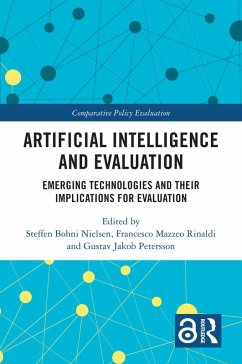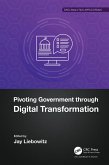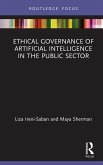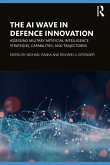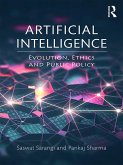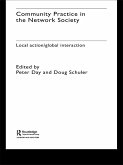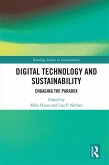In an era where digital technologies and artificial intelligence (AI) are rapidly evolving, this book presents a pivotal resource for evaluators navigating the transformative intersection of their practice and cutting-edge technology. Addressing the dual dimensions of how evaluations are conducted and what is evaluated, a roster of distinguished contributors illuminate the impact of AI on program evaluation methodologies. Offering a discerning overview of various digital technologies, their promises and perils, they carefully dissect the implications for evaluative processes and debate how evaluators must be equipped with the requisite skills to harness the full potential of AI tools. Further, the book includes a number of compelling use cases, demonstrating the tangible applications of AI in diverse evaluation scenarios. The use cases range from the application of GIS data to advanced text analytics. As such, this book provides evaluators with inspirational cases on how to apply AI in their practice as well as what pitfalls one must look out for.
Artificial Intelligence and Evaluation is an indispensable guide for evaluators seeking to not only adapt to but thrive in the dynamic landscape of evaluation practices reshaped by the advent of artificial intelligence.
The Open Access version of this book, available at http://www.taylorfrancis.com, has been made available under a Creative Commons Attribution-Non Commercial-No Derivatives 4.0 license.
Dieser Download kann aus rechtlichen Gründen nur mit Rechnungsadresse in A, B, BG, CY, CZ, D, DK, EW, E, FIN, F, GR, HR, H, IRL, I, LT, L, LR, M, NL, PL, P, R, S, SLO, SK ausgeliefert werden.

